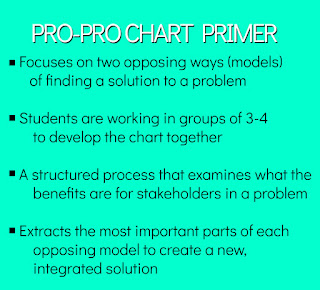Square Pegs and Round Holes
First, as we learn about our platform for blogging we’ve come across some shortcomings. We often embed videos in our posts. If you are reading this post in an email update, you can’t see the video. It’s worth it to click through to the actual blog to see all of the content we add. We’d hate for you to miss something.
Second, this post is deviating from our norm a little bit. I’m (Jamie) offering up some of my opinions and I’m probably being a bit more direct than I usually am. As always, we welcome feedback in our comments. Discussion is good.
This was an interesting week for me, as I came across several unrelated things that really got me thinking. While unrelated, I think they go hand in hand.
The first was the short animated film Alike, which was shown to Matt and I when we were talking about iteration with Wendy Spence, Sarah Alexander, and Kelly-Ann Cameron. Do take a few minutes to watch, if you can. It is an outstanding video, one that will stick with you. Trust me!
We started our talk about iteration by discussing how children develop. Think about a child learning to walk, it’s all risk taking and failure and trying again and failing until suddenly they get it right. Then it's on to running, same process. Throwing a ball. Riding a bike. Dancing. Singing. Playing. Drawing. Try, fail and learn over and over again. Then the child gets to Kindergarten and they play and explore, a lot. They are trying and failing, a lot. For the most part, children thrive in this environment. It’s how they’ve learned for all their lives so far. However, something changes when children graduate from Kindergarten, and that change is reflected in the graphic that was shared with me by Jeff Catania.
I think we’ve all noticed that as children move through school, their enthusiasm decreases. Their desire to be risk takers and explore new ideas decreases. School becomes something to dread. That’s on us. By the time a student enters Grade 9 they have spent over 10,000 hours in school. Long enough, according to Malcolm Gladwell, to achieve mastery in a field like learning. However, what we’ve probably noticed is that for each hour that goes by, they enjoy their time less. The educational system is leading students down this road, so what is causing this drain of joyful learning and risk taking out of our students? I don’t have answers, but I do have suspicions.
Which leads to some data I had a chance to read over this past week. Earlier in the school year, secondary teachers in Halton were invited to participate in a voluntary survey regarding their attitudes surrounding Final 30% tasks and whether we should be returning those tasks to students. The thing that struck me about this survey was that many teachers felt it wasn’t worth it to return a student's final exam or final performance task. The reasons were varied, but many centered around the fact that “students only care about their marks”, or that students wouldn’t learn anything from reviewing what they did wrong.
My feelings about final exams are no secret.
So if teachers don’t think students will learn anything from their final exam and looking at what they did wrong, why are we all still so hung up on giving a final exam? Are we really happy with classrooms filled with students who only care about their final mark? Aren’t we all trying to create young adults who want to learn for learning's sake? For me, the implication is clear. We are a part of a system that is its own worst enemy. As players in this system can we hack the system to break out of this cycle? Is there something we can be doing about this? The film Alike, the decrease in school enjoyment, our attitudes about exams are all symptoms of the same disease.
We place too much value on testing and marks and if students are ready for the next level. Students are square pegs, school is a round hole, and when a peg comes along that doesn’t fit, we shave down the edges and force it through. Then we keep doing that, over and over again. Every time we do that, our students enjoy school less.
So why can’t we just make the hole bigger? Why can’t we find ways to offer rewarding projects, individualized for each student, that hopefully more people would find value in?
You can read the survey data here and draw your own conclusions about final 30% tasks. We’d love to hear what your takeaways are.

Comments
Post a Comment